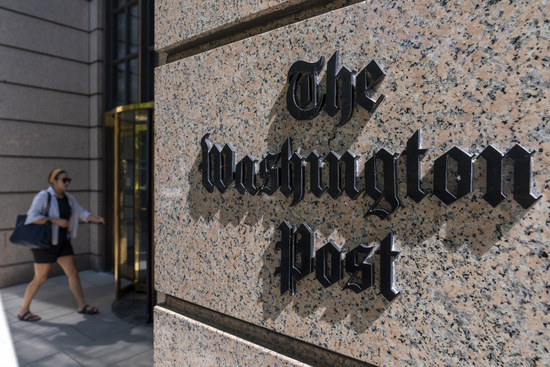NPR Editor-in-Chief Edith Chapin plans to leave the news outlet later this year, an announcement that hits shortly after congressional Republicans voted to eliminate all federal funding for public broadcasting.
Chapin informed CEO Katherine Maher of her intentions two weeks ago, before the funding rescission bill cleared the Senate. Chapin plans to stay until September or October, and she emphasized that her departure is not connected to the vote.
“I have had two big executive jobs for two years, and I want to take a break,” Chapin, who also is NPR’s acting chief content officer, told her own outlet. “I want to make sure my performance is always top-notch for the company.”
In a statement, Maher praised Chapin as a “leader in journalistic integrity, a champion for the newsroom, calm in the storm—and an indispensable partner during my first year at NPR.”
“She has led with conviction, clarity, and compassion—always putting the public’s interest first. Her impact on NPR’s journalism and on the many people she mentored and supported over the years is immeasurable,” Maher said.
Even if unrelated to the federal defunding of NPR, Chapin’s departure comes at a fragile moment for public media. The roughly $1.1 billion cut to the Corporation for Public Broadcasting, which helps fund NPR, PBS, and member stations, is expected to strike a significant blow to local journalism, especially in rural areas that heavily depend on government support. While NPR itself receives only a small portion of its budget from CPB, member stations face steeper consequences. Some get more than half their funding from the government.
That money runs dry on Oct. 1.
Maher has pledged to cut NPR’s operating budget by $8 million to partially offset the impact, providing relief to the stations hit hardest. Unfortunately, that’s just a drop in the bucket. Public radio stations have lost $350 million for each of the following two years.
Chapin joined NPR in 2012 and was promoted to the network’s top editorial role in 2023, shortly thereafter taking on the position of acting chief content officer. Her tenure has spanned a turbulent period marked by layoffs. And she helped strengthen ties between NPR and its member stations, promoting local collaborations.

But her departure isn’t happening in isolation. Across the media, prominent journalists and executives are leaving their posts as the industry adjusts to Trump’s return to power—and his unrelenting attacks on the free press.
Just this week, The Washington Post lost Pulitzer Prize-winning columnist Jonathan Capehart, the latest in a wave of high-profile departures. Fellow writers Ruth Marcus, Eugene Robinson, Philip Bump, and Perry Bacon Jr., among others, have stepped away recently. And top editors have also resigned or taken buyouts. All of this follows the Post’s owner, Amazon CEO Jeff Bezos, announcing earlier this year that he would force the outlet’s editorial page to hew closer to a conservative line of promoting “free markets.”
Also on Tuesday, the Post’s main TikTok personality, Dave Jorgenson, announced his departure. He told The New York Times that leadership was essentially “rolling out the red carpet” for employees to take buyouts if they didn’t align with the Post’s new direction.
“I am just not convinced that they have the best road map right now,” Jorgenson said, describing the newsroom’s changes as “inconsistent” and confusing.
The upheavals aren’t limited to print, either.
CBS News faced backlash after announcing it would end “The Late Show with Stephen Colbert” in May 2026, removing one of late night’s most popular critics of Trump. That decision came as Trump’s administration launched a sustained campaign against non-right-wing media, and as corporate networks seem increasingly willing to bend to his absurd demands.
And Trump’s rhetoric branding the press as the “enemy of the people” has now manifested as direct government action against public media.
Chapin may say she’s not stepping down because of Trump, but her departure highlights how much the ground is shifting beneath journalists. The pressure is real, and it’s unsettling the media landscape. As experienced voices leave the field, the risks to independent journalism only grow.
